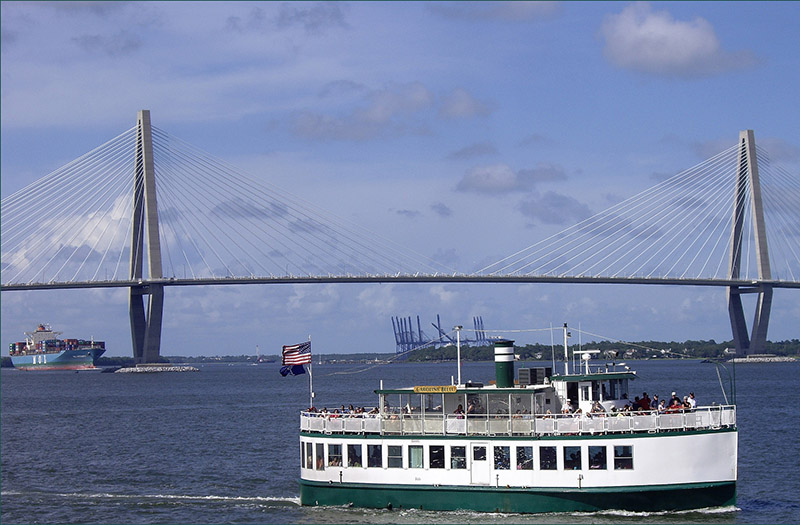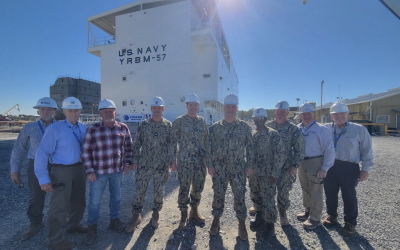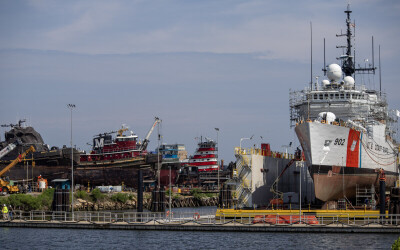Update, Sept. 28, 2016: The House passed the WRDA bill on Wednesday, but without the contested Harbor Maintenance tax protection . A compromise was also found on drinking water aid for Flint, Mich., which allowed the bill to go forward. The bill must now be reconciled with the Senate version, which likely will happen during the lame duck session after the November elections.
It was supposed to be an easy path to final passage, one of those rare bipartisan bills that would actually be passed by a fractious Congress — one that needs to show that it can get something done in a highly polarized election year. The Water Resources Development Act of 2016 was on track to be the pre-election poster boy for the pre-election Congress.
But then things started to unravel, and Washington soon looked very much like it often does. Frothing with bipartisan bickering and threats and angry press conferences and letters flying around Capitol Hill, Congress left in limbo an infrastructure bill that is important to the nation's waterways, ports, harbors and the national economy.
The WRDA 2016 bill sailed through the Senate two weeks ago by an overwhelming 95-3 vote. No problems there. The House version was due for a floor vote last week, after having gotten strong support from the House Transportation and Infrastructure Committee in May. Advocates of ports, waterways and the environment were lauding the accomplishment as a long-overdue commitment and recognition by Congress that addressing the condition of the nation's waterways demands regular attention — in this case funding directives and policy reforms every two years.
The last WRDA was passed in 2014, after more than seven years of inaction. Putting the authorization bill back on a two-year cycle provides much-needed certainty in the planning process for port and waterway improvement projects, which often take years and billions of dollars to design and construct.
Now WRDA is in trouble, putting into doubt plans to deepen Charleston Harbor to handle the larger container vessels that are moving through the Panama Canal, as well as 25 other modernization projects, such as the Brazos Island Harbor and the Calcasieu Lock in Louisiana. To the relief of the barge industry, the new WRDA rejected lockage fees to finance public-private partnerships for waterways projects.
Additionally, the Senate version addresses water quality problems in Flint, Mich., while the House version updates for the first time in 30 years the Harbor Maintenance Trust Fund, a cost-sharing formula for channel deepening.
Changes to how harbor maintenance taxes (HMT) that fuel the fund are spent are causing the current controversy.
Last Thursday, just days before the expected House vote, Republican leaders stripped WRDA of a provision that would prevent receipts in the harbor trust fund from being diverted and spent for non-harbor uses. This has been going on for years to the disdain of the nation's ports, which say funds should be used to maintain depths for shipping, not to offset the federal deficit. (It's interesting to note that the highway and aviation trust funds, that support improvements in those sectors, are already protected from being raided for other uses.)
The Trust Fund takes in about $1.8 billion a year in revenues from a tax based on the cargo value of imports and coastal shipments, as well as on cruise passengers. But not much of that money actually makes it to ports, as Congress has only appropriated about half that amount for harbor projects, with the rest going to other federal spending.
The issue seems to be a turf battle between House committees, the Transportation and Infrastructure and Budget panels. The move by Republicans angered Rep. Peter DeFazio, D-Ore, ranking member of the Transportation and Infrastructure Committee and author of the HMT provision, who said he would not vote for final passage of WRDA in its new form. He said that stripping a bipartisan provision at the last minute was "unprecedented" in the history of the committee, and charged that Republicans had "sabotaged a good, bipartisan bill." Rep. Nancy Pelosi, D-Calif., the House Minority Leader, added fuel to the fire, saying at a press conference that Democrats would not support WRDA because of the HMT change and the deletion of emergency funds for Flint, Mich.
A spokesman for Rep. Bud Shuster, R-Pa., chair of the Transportation and Infrastructure Committee, said the provision was removed so that the bill would be in compliance with the Congressional Budget Act.
It is hoped that this snafu has not doomed the bill, but a lot needs to happen and time is running short with Congress ready to leave town to campaign. Lawmakers face resolution of two sticky issues before things can move forward: Funds for cities like Flint that are experiencing contaminated water — another political hot potato — and the HMT. And although the House vote is important, the two different versions of WRDA would then have to be reconciled by a conference committee, which is another time-consuming exercise of negotiation.
The bill could be taken up after the elections by a lame-duck Congress and finished by the end of the year — the hope of the Waterways Council, an industry-supported group that backed the original legislation — or it could be put off to next year, leaving the prickly decisions to the next Congress. In that scenario, it's back to square one with many new members of Congress and a new administration to educate.





